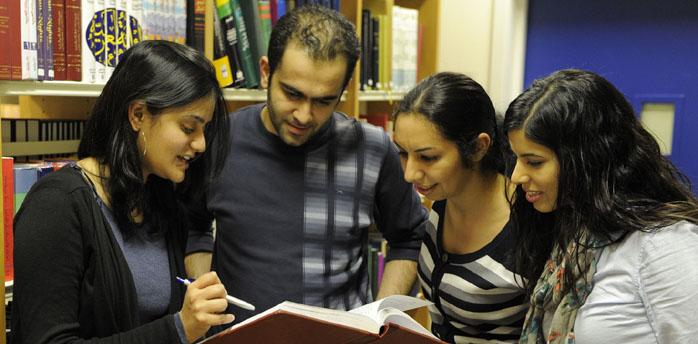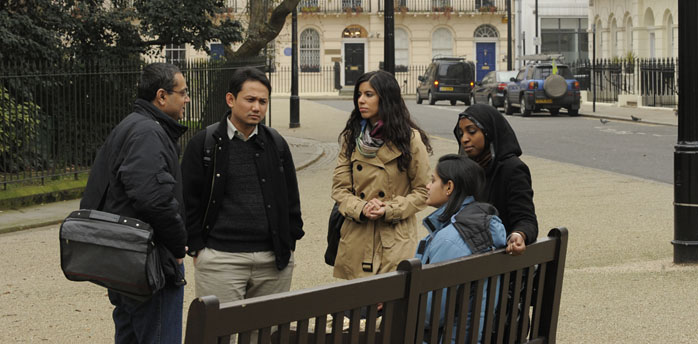Speaking the same language…

What do a community development worker from northern Pakistan, an English language teacher from Tajikistan, a sociologist from Iran and a graduate of the Karakoram International University all have in common?
Your initial response may be: very little. And that is not far from the truth about this group of students who are undertaking the two-year MA Programme in Muslim Cultures, at the Institute for the Study of Civilisations (ISMC) in London.
These students arrived at ISMC with their own, often very strongly held understanding of what it means to live in a ‘Muslim’ society. As Maryam Ghadyani, the student from Iran says: “Different people have different experiences of culture which is ‘Muslim’.”
ISMC aims to strengthen research and teaching about the heritage of Muslim societies, with specific attention to the challenges these societies face in contemporary settings. For this purpose, ISMC enrolls students from various countries who have a genuine interest in understanding Islam and Muslim cultures, and improving their societies. Many of these students are being provided financial assistance.
For students ISMC is a ‘mini-universe’, where instead of focusing on their differences, they are encouraged to engage with each other intellectually and to appreciate their similarities and the common questions they are grappling to address. It is in adapting and learning to compromise, that the students learn to speak the ‘same language’ both metaphorically and literally.
As soon as they arrive at ISMC, the students have to adapt to English-medium instruction and ‘speak the same language’. In addition, Arabic, Persian and Turkish are taught as a part of the ISMC curriculum.
Each of these students comes from an environment characterised by political uncertainty, conflict and religious tensions. In each of their narratives, there is a desire for a more tolerant and knowledge-based approach to society. However, before they can return to their own communities and be agents of change, these students have to learn to speak with each other.

Alamgir Ali, who worked for the Aga Khan Rural Support Programme in Pakistan before joining the programme, speaks about Sunni-Shia tensions in his local community in Hunza, and how he wishes to bring together different sects through an understanding of what causes differences between people of one faith. Shahriyor Mazabshoev, a teacher from the Institute for Professional Development in Tajikistan, describes how religion becomes intertwined with politics and power, particularly through the recruitment of youth for political activity.
Munira Shaheen has a degree in Anthropology and Development from the London School of Economics, and studied at the Karakoram International University prior to that. She chose to come to ISMC because the programme provides ample opportunity to undertake in-depth study of Muslim civilisations and to conduct fieldwork. Munira has conducted research into the development of the highly controversial Hudood Ordinance in Pakistan, and its impact on women’s agency and empowerment. While studying modules on ‘Formation of Muslim Thought’ and ‘Muslim Responses to Modernity,’ she was able to approach the topic from a fresh perspective and link it to the formation of Islamic laws and various forms of feminism in the Muslim world.
The students also speak in particular about how the Aga Khan Development Network is a model for post-conflict development in many countries and expressed interest in learning from the global experiences of the network.
The road ahead is not easy. However, the learning and exposure provided by ISMC will play a pivotal role in enabling them to articulate the complexities of Muslim cultures, challenge pre-conceptions, and foster understanding. Moreover, through their interaction with their course mates, they will learn to appreciate the lived experience of Islam around the world.
Maryam Ghadyani, Alamgir Ali, Shahriyor Mazabshoev and Munira Shaheen are from ISMC's Class of 2016.

